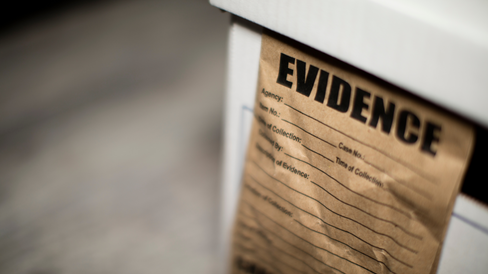How Police Reports Can Make or Break Your Personal Injury Claim
- Patrick C. Wenk, Esq.

- Oct 11, 2024
- 3 min read

Photo Credit: Axon
When you’re involved in a car accident or any other situation that could lead to a personal injury claim, calling the police is one of the most important steps you can take. You might not realize just how much a police report can shape the outcome of your case. As a retired Delaware State Trooper and now a personal injury attorney at Kimmel Carter, I’ve seen how these reports can make all the difference in personal injury claims.
What’s a Police Report, and Why Does It Matter?
A police report is an official document created by law enforcement at the scene of an accident. It’s packed with crucial details—like when and where the accident happened, who was involved, what the conditions were, and statements from witnesses. Officers might also include sketches of the accident scene, details about injuries, and whether any tickets were issued.
This report serves as an unbiased, factual account of what happened. Here’s why that matters for your personal injury claim.
1. Establishing Key Facts
The police report serves as a crucial piece of evidence in personal injury cases. It provides a factual foundation that attorneys, insurance companies, and the courts can reference. This is especially important when the details, such as weather conditions or road markings, back up your story or contradict the other party’s.
2. Credibility of a Neutral Observer
Police officers don’t have a personal stake in your case. Their neutral observations carry significant weight in legal settings. Judges, juries, and insurance companies tend to view police reports as reliable sources since they come from trained professionals who are there to assess the situation without bias.
3. Helping Prove or Challenge Fault
Determining who’s at fault is critical in a personal injury claim, and police reports often offer clear insight. If the report shows that one driver ran a red light or was ticketed for speeding, it strongly supports a negligence claim. On the flip side, if the report doesn’t align with your version of events, your attorney can use this information to build a defense or challenge the report’s findings.
4. Strengthening Settlement Negotiations
Insurance companies often use police reports to evaluate claims. If the report supports your account, it can significantly boost your chances of a favorable settlement. A well-documented police report may lead to a quicker and higher settlement offer, saving you the stress of a prolonged legal battle.
How Police Reports Are Created: What Happens at the Scene?
Police reports are based on a thorough process. When officers arrive at the scene, here’s what they typically do:
Interview Everyone Involved
The officer will talk to drivers, passengers, and any witnesses to gather firsthand accounts of what happened. These statements are often included in the report and can help piece together the full picture of the incident.
Document the Scene
The police take note of physical evidence like vehicle positions, damage, skid marks, and road debris. They may also take photos or draw diagrams to create a visual record of the scene.
Assess Conditions
Officers look for contributing factors, such as poor weather or road obstructions, and they also check for signs of impairment (like alcohol or drug use). Any citations or arrests made will be noted in the report.
Steps You Should Take After an Accident
To ensure the police report accurately reflects the incident, follow these steps:
Call the Police | No matter how minor the accident seems, always report it. You may need that police report if you end up filing a personal injury claim.
Give Clear, Accurate Information | Be honest and provide all the necessary details when speaking to the officer. Don’t speculate or make guesses—what you say can impact your claim later.
Review the Report | Once the report is filed, request a copy and go over it carefully. If you find any mistakes, reach out to the police department to correct them.
The Power of a Well-Documented Police Report
At Kimmel Carter, we know how important a solid police report can be for your personal injury claim. It’s not just paperwork—it’s often the backbone of proving liability, guiding negotiations, and ultimately securing the compensation you deserve. If you’ve been in an accident, don’t underestimate the impact of a thorough police report. Contact us today to learn more about how we can use this powerful tool to help you win your case.
At Kimmel Carter, our team of experienced attorneys is dedicated to guiding you through the Delaware Personal Injury process. If you or a loved one have been injured in an accident, please call us for a free legal consultation at (302) 565-6100.















Comments